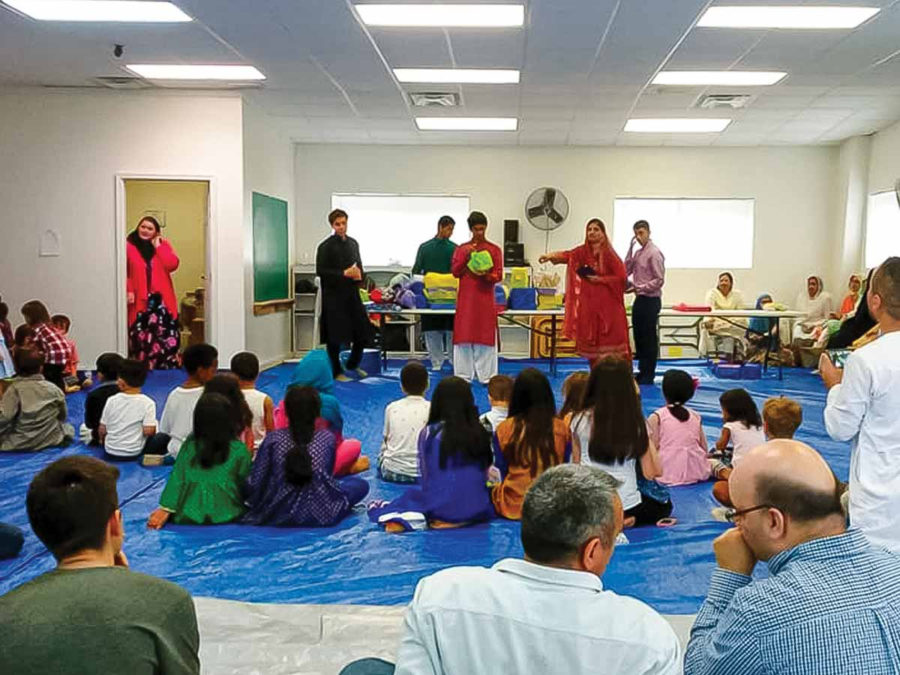“All of the prophets, when they got in trouble, they fell on their face and prayed, just like the Muslims still do today,” he said. “And all of the prophets told the people to obey the commandments, not whatever they wanted to do, just like the Muslims are supposed to do today.”

Prayer is a vital component of Islamic practice. While the weekly Jummah prayer is the center’s largest regular assembly — analogous to Sunday worship at a Christian church — the center is open for five prayers each day. Exact times vary based on sunrise and sunset, but on Tuesday, Feb. 22, listed times were 5:58 a.m. for Fajr prayer, 7:08 a.m. for sunrise prayer, 12:44 p.m. for Dhuhr prayer, 3:53 p.m. for Asr prayer, 6:19 p.m. for Maghrib prayer, and 7:30 p.m. for Isha prayer.
These prayers draw much smaller numbers than the Friday assembly, typically only one to five people, said Garrett. It’s hard to rise early enough to attend Fajr or sunrise prayers before work, or to fit the Dhuhr prayer in over a lunch break.
“But that’s why they say you do something religiously when you do it constantly,” he said.
The regular prayer gatherings serve an important purpose in the Islamic community.
“To remind us that we’re all one brotherhood, to remind us that we’re supposed to care about each other and we’re supposed to see each other,” said Garrett. “As people come on a daily basis, you can generally know who’s sick or who’s needy. So it’s supposed to attach us as a unit, as a humanity.”
It’s also supposed to offer a consistent, direct connection to God.
“Our real purpose is trying to make it to paradise in the next life, and God always wants us to succeed so he has told us to stop five times a day and kind of retune ourselves, remind ourselves why we’re really here,” said Garrett. “It’s not to build an empire here. It’s to try to make sure we have something in the real retirement home.”
In addition to prayer, the Islamic center also offers Wednesday night classes, and it hopes to expand those offerings soon. As khateeb, Garrett serves as a speaker and leader but doesn’t have the kind of formal training and learning needed to be an imam. The congregation expects an imam to arrive on March 3 — someone who has a degree in Islam, is fully trained, and has memorized the entire Koran — at which point Garrett will step aside from many of the duties he’s performing now.
“We’re hoping to really expand what we do at the Islamic center in the coming months,” Garrett said. Expanded offerings could include classes in Arabic, memorizing the Koran and basic manners.
Despite Islam being a minority religion in the mountains, Garrett said the congregation has received a positive reception from the community in its more than 20 years of existence in Asheville.
“Even at 9/11, a lot of the churches stepped up and showed a lot of solidarity for the Muslims during 9/11, and we were really appreciative of that,” he said. “We actually used that as a time to get to know the other religious organizations in our area.”
Now, he said, the Islamic Center is collaborating with Christian churches in the city to help settle the Afghani refugees some of those congregations are sponsoring.
“From where I’ve been throughout the world, Asheville is an extremely accepting area,” Garrett said. “It’s a very diverse area, and they’re very open. We haven’t gotten a lot of challenges that we haven’t made for ourselves.”



